It is possible to explore Japan beyond the golden route and not sacrifice your green travel credentials.
To make your travels as sustainable and eco-friendly as possible, here are 5 insider tips for sustainable travel in Japan.
From tips on how to save water, advice on how to reduce plastic waste, to hiring local guides, these tips will help you make the most of your travels while minimizing your environmental impact.
Download my Free How To Travel in Japan Mini-Guide:
5 Insider Tips for Sustainable Travel in Japan
by JJ Walsh
The overuse of single-use plastics
Travellers to Japan often rave about the clean streets, stations and facilities they see as they travel around the country.
Rightfully so, it’s impressive to see most shopkeepers out in front of workplaces sweeping up every last leaf on the public sidewalks before the business day begins. Unfortunately, travellers also remark on the overuse of single-use plastics in Japan - inescapable in most hotels, eateries and shops as misguided hospitality.

Japanese convenience stores are fantastic but can create a lot of single-use plastic
The good news is that international travellers can be sustainability heroes in Japan that help accelerate change to Japan’s adoption of more sustainable products, services and strategies.
Here are 5 insider tips for Japan travel that will help you support local people, reduce your negative impact on the environment and better support the local economy.
1. Book half of your stays outside the ‘golden route’
When choosing where to go and how long to stay in each place, plan at least half of your trip outside of the biggest cities of Tokyo, Osaka, Kyoto to refresh, relax and see a beautiful side of Japan that most visitors miss.
Many travellers are tempted to book a week's accommodation in the golden route: Tokyo, Osaka or Kyoto and use the Japan Rail Pass to day trip the other sights. It seems like a good idea, but it is actually a novice mistake most people regret.
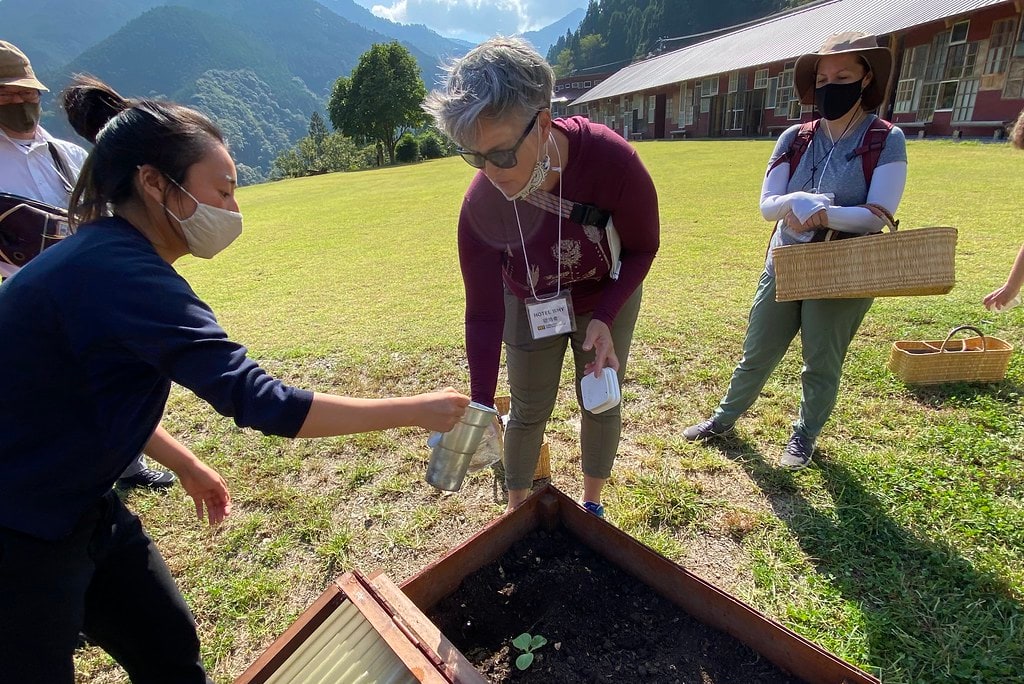
Composting reuses food waste at Hotel WHY in Kamikatsu, Tokushima Prefecture | Photo: JJ Walsh
These travellers spend most of their time in busy stations, packed streets and stressed commuter trains when they could be waking up early and seeing amazing sights before the crowds arrive, or popping out after the crowds leave to see the magic of a quiet evening.
In Tokushima Prefecture, on the island of Shikoku, you'll find the rural hamlet of Kamikatsu, a town committed to sustainable practices. The zero-waste Hotel WHY here is even made from recycled materials.
Travel from and to the big cities at peak times also adds stress to local communities as commuters who have to travel at these times for work and school each day struggle with the additional tourist crowds.
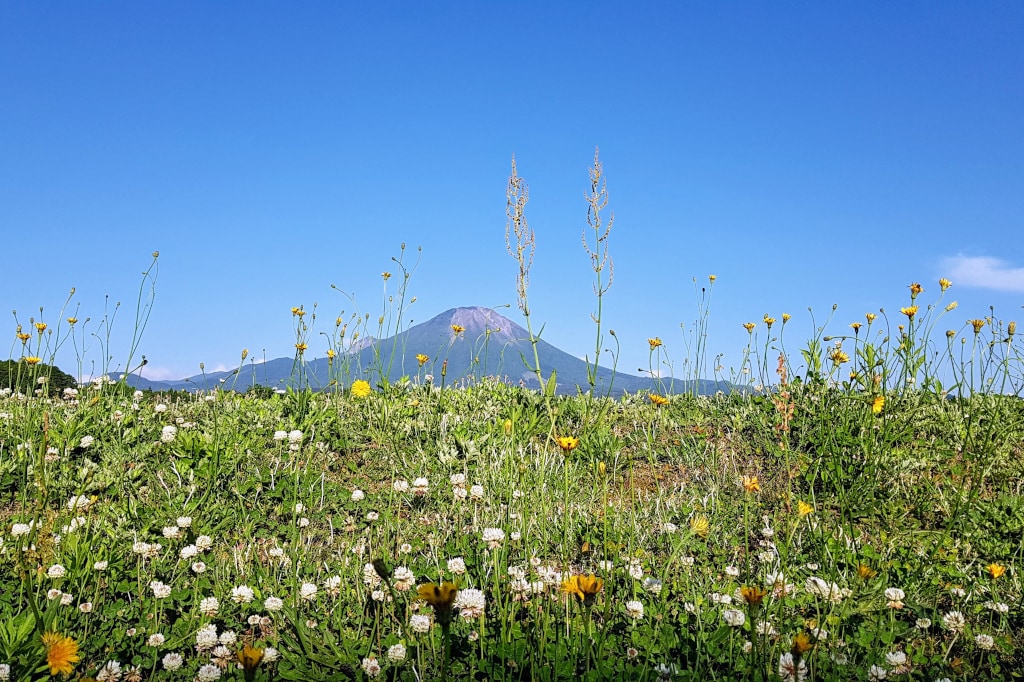
Mt. Daisen in the little-explored Tottori Prefecture provides magnificent Mt. Fuji like views with none of the crowds
I have never met a traveller who regretted booking stays outside a big city and they always have great stories to tell. It also better supports these local economies, employment and brings new residents to areas dying from population decline.
By choosing to stay in smaller destinations, you are also building demand for workers and entrepreneurship outside of the cities as new residents are attracted to the jobs, or to start their own travel-related startups.
2. Ship your big bags between hotels
Big suitcases are bulky and difficult to travel around Japan’s narrow trains, stations and streets and can actually be dangerous. Save yourself the stress and hassle of carrying your heavy cases between destinations by using local delivery companies from your hotels or convenience stores.

Yamato is one of the biggest shipping companies, their vans with their distinctive cat logo are ubiquitous in Japan
If you pack a smaller overnight bag, you can ship your big case the day before you move to your next destination to free yourself up - and it will make it to your next hotel when you check in. There are never enough lockers in stations and many travellers waste precious sightseeing time hunting for baggage storage areas.
Sending bags ahead of you is smart planning that will enhance your trip
Sending bags ahead of you is smart planning that will enhance your trip. Without a huge bag, it is easier to be flexible and see more along the way between your overnight stops. You can more easily make stopovers along the shinkansen bullet train line, or get off the shinkansen routes altogether by using local train services and lines.
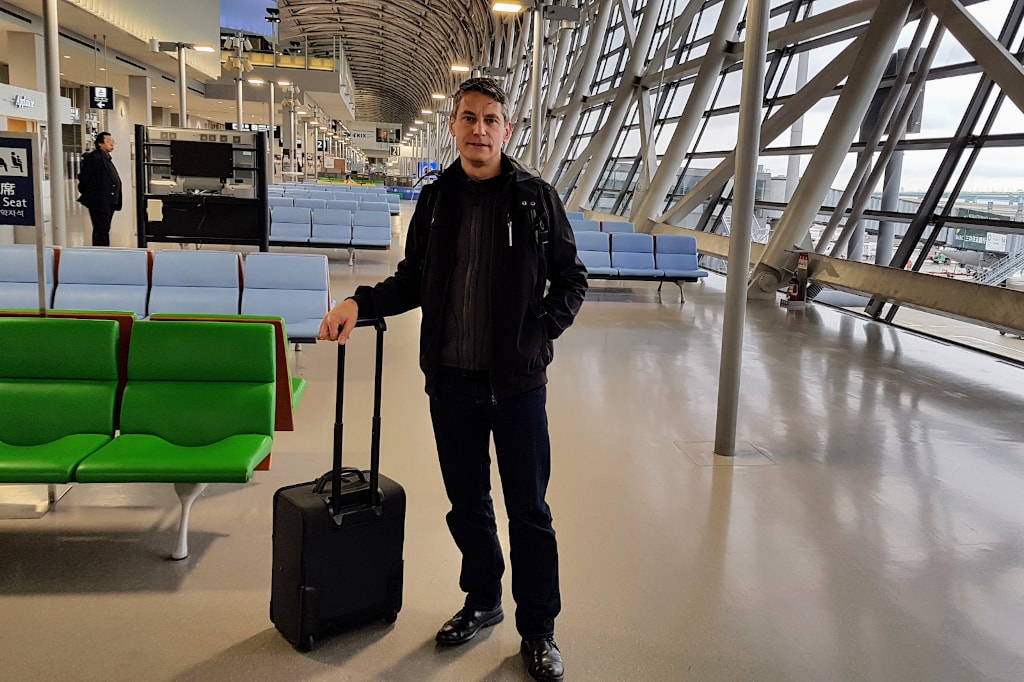
Shipping your biggest luggage ahead means you can travel easier with smaller cases
Without a big bag, travel north to Tohoku for walks around cities and the famous Michinoku Coastal Trail for the day. Take in seasonal blooms in areas along the way. Get off the train for a couple of hours to explore Himeji castle or the historical district of Kobe. Or even take the train as far south as Kagoshima to take in the sights of the Sakurajima volcano in the charming southern island port town.
I have met so many travellers who appreciated the flexibility of more adventurous and varied travel experiences once they have freed themselves from their heavy, bulky bags. It also supports the local delivery companies while reducing your stress as you make more space for fellow travellers and commuters.
RESOURCE: Yamato Transport Global
3. Bring your own…
Did you know that the samurai always carried their own chopsticks?
Following this historical practice is cool, reduces waste, and is actually healthier as you avoid the dusty, dubious origin waribashi wood sticks at most eateries.
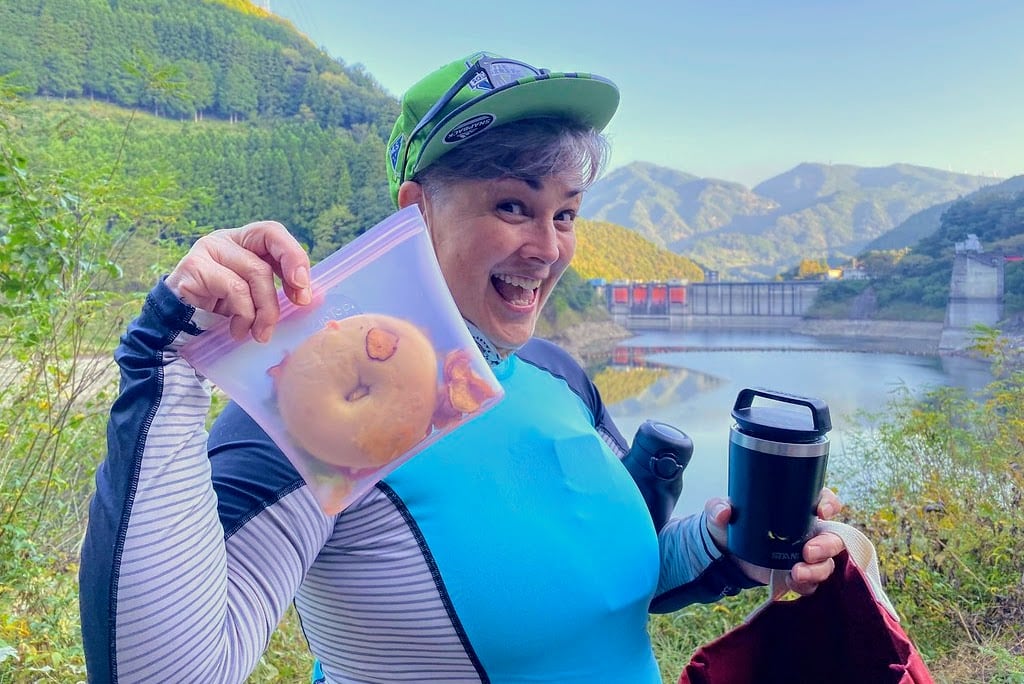
Carrying your own reusable take out bags saves on lots of single-use plastic packaging | Photo: JJ Walsh
Refilling your own water bottle and avoiding PET plastic single-use drink bottles (which are mostly incinerated or added to landfill) is a huge way to reduce your waste and save money.
Find clean, safe, tasty water refills by using the MyMizu app which lists great places to fill-up for free at eateries, hotels, shops like Patagonia, public facilities and parks. Japan’s water is good, clean, safe and tasty in 99% of the country and refilling stations often offer a choice of teas as well as water.
Also bring your own containers and bags to fill with foods and sweets while on the go.
Bakeries in Japan are wonderful, but also often the worst culprits of over packaging every last item in unnecessary plastic bags. So, if you manage to convince the staff to allow you to go from your tray to your bag or container, you are a true sustainable hero!

Love sake? Why not carry your own cup? After all, they are tiny! | Photo: JJ Walsh
Be on the lookout for fruit shops and supermarkets where items are sold without packaging, and carry your own shopping bags and furoshiki cloths to wrap items. It will save you time, money and the hassle of finding a rare trash can while also significantly reducing the negative impacts of generating plastic waste.
SEE ALSO: Top 7 Etiquette Tips For Travel in Japan
4. Ask about sustainability and sustainable possibilities
One of the most powerful things visitors to Japan can do is ask questions about sustainability and whether more sustainable options are available.
When booking a hotel, add a note like this: "I want to travel sustainably, so if possible please don’t put any PET plastic water bottles or plastic single-use amenities in the room. And please leave the AC and fridge switched off for our arrival. I’d also love to see vegan options at meals, thanks & arigato!"

Staying at small traditional ryokan inns, or minshuku (Japanese B&Bs), helps support local economies
Many hotel owners claim that customers don’t care about sustainability as a reason not to change to more sustainable strategies. But if you clearly communicate a desire for sustainable practices, you are planting a seed and creating the vital demand to spur positive change.
Consider staying at small ryokan (traditional Japanese inns), or minshuku (Japanese style B&Bs) to help support the local economy.
Whether you eat meat and fish or not, it’s a great way to support the transition to sustainable hospitality if you can ask if there are any vegan and vegetarian options. Even if you don’t choose them, the staff will see that there is greater demand for plant based options. Google Maps and Happy Cow are great resources for finding reliable plant based options.

Asking for organic and local produce helps support local farms | Photo: JJ Walsh
Asking about the origin of the ingredients is also a change-creator. Is this organic? Where does this come from? Most shopkeepers take pride in the origin of their ingredients and goods and are happy to talk about this, it can also show them you appreciate the efforts they make to support local craftspeople, farmers, and manufacturers.
If you are looking for sustainable ingredients, it’s best to avoid meat and fish. Most meat and fish is imported and has a huge negative impact on the planet as well as the people working in the industry who are often exploited.
For meat, pork is in everything and is the most imported meat to Japan with a high carbon cost. Also, big game fish like tuna, shark, salmon and whale have huge negative impacts on ocean plastic pollution and overfishing problems worldwide.
Japan’s oyster industry creates a lot of jobs and positive economic impact, however, it is a huge ocean plastic contributor.

The letter 'O' in this Toba Ichibangai shopping centre sign is made from an oyster with a pearl in it
The coastal city of Toba in Ise-shima, Mie Prefecture. tries to strike a balance between preserving the tradition of the freediving ama women and Japan's sustainable cultured pearl industry, represented by the Mikimoto Pearl company.
So, enjoy your sushi but eat a lot of the veggie sushi and vegetable side dishes and soups as well with your meal. For oysters, ask if they have “plastic-free oysters” which should become the norm as producers shift back to using traditional bamboo and wood.
Ask about locally caught fish, wild game meats, horumon (guts), plant-based options and the wonderful seasonal vegetables eateries offer to eat really well, but also more sustainably.
SEE ALSO: Seike Yuba (Tofu Skin) Restaurant, Kyoto
5. Hire a local guide
There are so many wonderful guides and resources online - like The Real Japan! But hiring a local guide for even an hour or half-day at each destination can be a priceless part of your trip. Locals give you insights on their favorite places and why they love the area as well as tell you the best stories of its history, heritage and famous sights, foods and shops.
[EDITOR: If you'd like help sourcing local guides check out my Travel Planning Services.]
The best guides I’ve worked with are able to connect on a personal level, are curious and engaged and really enjoy introducing insights of their home town to you. Nothing says sustainability, that creates a future world we want to live in, like connecting with others on a personal level to better understand each other’s culture and values while having fun.
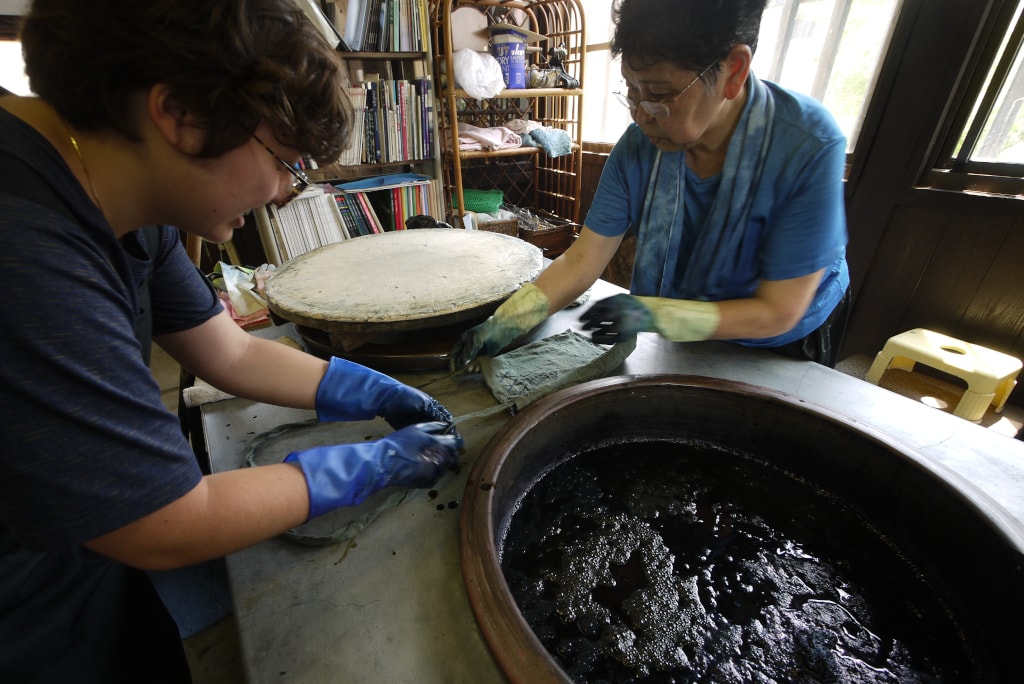
Using locals guides and engaging with local craftspeople, like this indigo workshop, also helps connect you with people | Photo: JJ Walsh
Too many travellers who arrive in Hiroshima after a week or two in Japan tell me they are so lonely and disconnected from the locals while they travel. Japan is a very polite and reserved society which offers few chances for real engagement on a personal level.
This is another reason to hire a local guide who can not only connect you to that local area best, but also introduce you to other locals who will engage with you more because they trust your guide.
We want you to have a fantastic trip to Japan that leaves you with great experiences and memories to last a lifetime. Travelling in Japan will fill your camera with so many great, beautiful sights, but spending time with a local guide will give you the best stories to tell to your friends and family when you return.
SEE ALSO: Top 6 Best Rated Kyoto Cycling Tours
Conclusion
I hope these 5 tips help you make the most of your trip to Japan - while also reducing your negative impact on the environment. And at the same time enhance your positive connection to local Japanese communities, and help push Japan’s sustainability momentum further in the right direction.
About the Author
JJWalsh is originally from Hawaii and a long-time Hiroshima-jin who works as a sustainability-focused writer, travel-consultant, sustainable travel guide trainer and host of the Seek Sustainable Japan talk show-podcast. Founder InboundAmbassador.com / CoFounder GetHiroshima.com
Related Further Reading
3 Hidden Kyoto Walks To Get You Off The Beaten Path
Going Beyond Tokyo: Why It Pays To Be Bold
Seike Yuba (Tofu Skin) Restaurant, Kyoto
Stardust Vegan Cafe & Boutique, A Kyoto Oasis
Need help planning your Japan trip?
Visit my Japan Travel Store
Resources
JNTO Sustainable Travel Guide
https://www.japan.travel/en/sustainable/
Michinoku Coastal Trail Centre website
Michinoku Coastal Trail - Natori Trail Center
More Experience Resources
My List of Recommended Japan Travel Resources
If you enjoyed this article please share this image online:


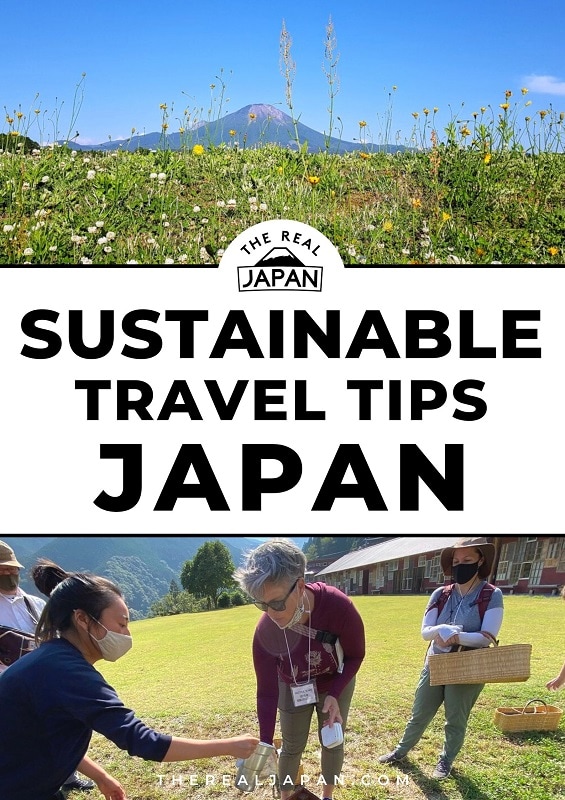

Amazing ideas, my favorite part, though a lot of travel agents may not prefer (for there is low profit margin), is to book minshuku or local accommodations.
Packaging, bringing your own sake bowl sound like not very practical, but are great ideas..
Thanks for sharing…
Thanks Sanjib. I also like staying in minshuku/local accommodation at times, and it’s easier to access them online in English these days then it used to be.
Good
Thanks Peter – glad you thought so.
I like the idea of booking trips outside of the Golden Route. This works all around the world really. Doing so aids sustainable travel and also opens minds to quiet, peaceful ways of living. We booked a place for the month roughly 20 minutes outside of a bustling city in Turkey. I love spending time in farmland, with forests and mountains a 30 minute walk away. Cool exploring options too well off of the beaten path.
I completely agree Ryan. Seeking out the lesser-visited places is not only more sustainable but directly supports regional and local businesses. And, as you say, offers countless opportunities to discover quiet places that most travellers never get to see or experience.
Hope these tips help give readers/travelers some new ideas about how to make your trip better, but also more sustainable in how it supports local communities and has less damage on the environment while you create your beautiful memories.
Thank you so much for your guest post Joy. I think it accomplishes your aim perfectly!